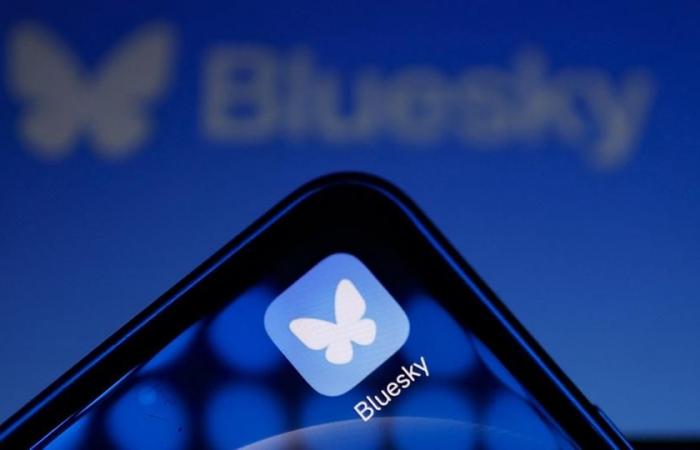In the wake of the US presidential election won by Donald Trump, the social network Bluesky gained more than a million users. The platform aims to be more secure than X.
Since the election of Donald Trump, Bluesky has gained over a million users. Originally developed by Jack Dorsey, the former director of Twitter, which became X with the takeover of Elon Musk, this social network whose logo represents a butterfly is presented as a more secure interface, with more moderation and more peaceful exchanges.
The omnipresence of the Tesla boss in Donald Trump’s presidential campaign and government team seems to be one of the reasons for Bluesky’s recent success. Joining the butterfly platform would in fact be a political act signifying the refusal to adhere to the republican positions of the owner of X.
According to the Guardian, this influx of new users comes largely from North America and the United Kingdom. Their arrival allowed Bluesky to reach nearly 15 million users in total, compared to 9 million in September.
15M people on Bluesky!!! The Verge beat us to our own announcement — that’s the beauty of an open network with public stats!
[image or embed]
— Bluesky (@bsky.app) November 13, 2024 at 4:43 p.m.
If the butterfly platform began as a project within Twitter, it became an independent company in 2022. Jack Dorsey has since withdrawn from this network which is now mainly owned by the general director, Jay Graber.
Bluesky allows you, like X, to post messages as well as like, repost or respond to those of others. It is also possible to send videos and chat privately.
The social network is built on a decentralized architecture, supposed to allow more measured exchanges and more transparent moderation rules.
A “mission-driven” business enterprise
Many users criticize banned him.
On Bluesky, users can specify whether they want to see, block or hide violent or sexual content under a warning, flagged by a mix of algorithms and community flags.
Registered as a “mission” commercial company, the platform wishes that “advertising is not its main economic model” and does not intend to monetize its users’ data, but has launched a first paid offer allowing you to acquire its own username attached to an internet address.
Interviewed by the Guardian, social media researcher Axel Bruns believes that this platform has “become a haven for people who want to have the type of social media experience that Twitter once offered, without all the extreme activism right, disinformation, hate speech, bots and everything else.







